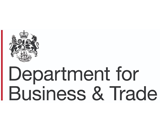Check out Get Safe Online Week
Today marks the start of Get Safe Online Week - an annual event which aims to raise awareness of the dangers of online criminals – and the simple steps you can take to defeat them and be safe online.
Online crime - or 'cybercrime' - is a growing threat and anyone can be a victim. Online criminals can be someone you know, anonymous individuals or an organised criminal network. During this week, they will be publishing new research about attitudes and experiences of cybercrime, as well as alarming statistics about the level of various types of crime in financial terms. They will also be publishing examples of people who have fallen victims to cybercrime, and profiling some of the perpetrators themselves.
They will also publish basic, "if you don't do anything else, do these" tips about keeping yourself, your family and your bank balance protected.
New research which Get Safe Online have commissioned shows the emotional cost of cybercrime, with half of victims having felt ‘very or extremely violated’ by their ordeal. The fact that over half of the population have fallen victim to cyber criminals, means that everybody needs to take this threat seriously, without exception. After all, criminals have no scruples when it comes to fraud, identity theft and other financially-motivated crimes.
This week we here at the National Trading Standards eCrime Team have joined GetSafeOnline's campaign along with many of their partners in the private and public sectors to reinforce safety messages about online security. Keep an eye out for their 'Don't be a victim' roundel elsewhere on the internet and whilst out and about.
By following a few simple and easy steps, the you can avoid falling victim whilst at the same time making life as hard as possible for scammers and rogue traders:
• Look for the padlock: When banking or shopping online check for the padlock symbol in the browser window and make sure the web address begins with ‘https://’. The ‘s’ stands for ‘secure’.
• Log-out&Log-off: When you’ve finished with your online accounts always remember to log out and log off a computer.
• If in doubt, don’t click: Never click on a link sent to you from someone you don’t know.
• Be software savvy: Protect all your devices with internet security (antivirus/antispyware) software and make sure you regularly install updates.
• Report it: If you have been a victim of cyber-enabled economic fraud you should report it to Action Fraud, the UK’s national fraud reporting centre by calling 0300 123 20 40 or by visiting www.actionfraud.police.uk. If you are a victim of online abuse or harassment, you should report it to your local police force.






